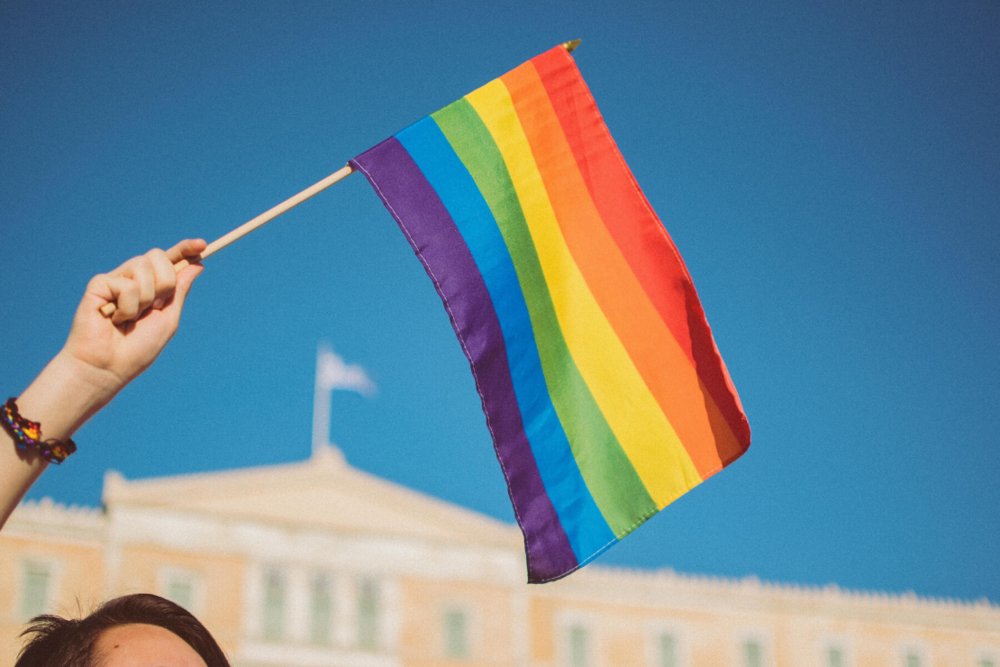Out At Work: How To Support And Be An Ally To LGBTQ+ Colleagues
Jun 11, 2020

By Aimee Zawacki, Software Engineer at Techstars
It’s Pride Month! A time and place where we LGBTQ+ humans get to be fully ourselves, to come together in solidarity, honor the queers that came before us, and celebrate our prismatic identities.
Today, one of the most important facets of Pride month is visibility — a feeling / experience that we queers are often deprived of, and that many folks outside of the LGBTQ+ community may have a hard time understanding or empathizing with. So let’s unpack it!
Visibility literally means the experience of being seen. The Pride parades happening across the country this month are a great example. The community comes together to be seen and heard in the safety of the ephemeral Pride environment. But why is this so important? Don’t people see us every day?
For many LGBTQ+ folks, the answer is an emphatic “NO.” Why? For a multitude of reasons including safety, discrimination, exhaustion, and preference to name a few. We have learned to hide essential parts of ourselves as a means of surviving in a largely homophobic society.
But wait, same sex marriage is legal now right? Aren’t there openly gay, lesbian and transgender legislators? Well… yes, however those two very visible facts do not accurately represent the often invisible lived experience of LGBTQ+ people worldwide.
There is endless data that illustrates the plight of LGBTQ+ people across the globe, and the difficulties we face collectively and as individuals, especially those of us with intersecting identities. Today, we’ll zero in on something that almost everyone, gay, straight, trans, or otherwise has to do: go to work!
In a recent study conducted by the Human Rights Campaign, they found that 46% of LGBTQ workers in the U.S. are closeted at work. Now, we could spend all day talking about the term “closeted,” its origins, and what it means. For the sake of illustrating common experiences of LGBTQ+ folks in the workplace, closeted here means the choice to hide your sexual and/or gender identity, in favor of passing as heterosexual or cisgendered.
For LGBTQ+ readers, this likely does not come as a shock. If this stat, that nearly half of LGBTQ+ people are closeted at work, was surprising to you, consider this finding from the same HRC research:
80% of non-LGBTQ people agree that LGBTQ people should not have to hide who they are at work. Yet of that same group, 59% think it’s unprofessional to talk about sexual orientation and gender identity in the workplace. What we have here, is a contradiction, one that illustrates a simple truth, that many LGTBQ+ people do not feel safe being out at work.
To bring in a little personal narrative and some of that sparkly Pride magic to this piece, I asked Amanda Fish, Executive Assistant to our CFO and SVP of Business Affairs at Techstars, to share her coming out story. Coming out at work can be profound and empowering, but too often this experience is eclipsed by the reality of being out in the workplace.
As Amanda beautifully illustrated, when we take the risk to step into our truth, we are not always met with open arms. In and out of the workplace, coming out directly impacts our physical and emotional safety. In the HRC study cited, 31% of LGBTQ+ workers felt unhappy or depressed at work. Other common symptoms of an unwelcoming environment include distraction, exhaustion, burnout, and anxiety.
So what can be done?
For us LGBTQ folks in a place of privilege:
Hold coworkers, management, and leadership accountable. Your privilege may come in the form of race, gender identity, career choice, or current role. Recognize you have it and use it to create meaningful change.
Be a safe space. Sometimes the best thing we can do is to listen without judgement, and provide an outlet for folks to share their experiences, voice concerns, or just plain vent. Being there for each other is valuable emotional labor.
Be your full self at work. While being out is your choice and your choice alone, recognize that although it may seem difficult at times, it’s potentially much easier for you than for people with marginalized identities. When you are out at work, you create space for others to safely be out as well.
Be a leader. Ask yourself, “How can I make an impact?” And when you have the physical and emotional bandwidth, pursue those endeavors. That could look like company wide training initiatives, public speaking, hosting a support group, or even just taking a coworker you know is struggling to lunch.
For the straight and cisgendered wanting to be allies:
If you see something, say something. 53% of LGBTQ+ workers report report hearing jokes about lesbian or gay people, 41% transgender-specific and 37% bisexual-specific jokes. When you witness this behavior, speak up. Seek out the appropriate channels and let it be known you find this unacceptable!
Work to uncover your unconscious bias. 1 in 5 LGBTQ workers have been told or had coworkers imply that they should dress more feminine or masculine, compared to 1 in 24 non-LGBTQ workers. We all have unconscious biases; make understanding and managing yours a priority of your personal development.
Initiate conversations with your LGBTQ coworkers. 20% of LGBTQ workers avoided a special event at work such as lunch, happy hour, or a holiday party. Be kind, and respectfully persistent. Remember they’ve likely been burned before and you may need to earn their trust.
Leaders, take reports of unfair treatment and harassment seriously. 45% of LGBTQ workers agree with the statement that “Enforcement of the non-discrimination policy is dependent on their supervisor’s own feelings towards LGBTQ people.”
We all have an opportunity to transform the places we work in. Will you make that commitment today?
Thanks for reading!
Resources:
A Workplace Divided, Understanding the Climate for LGBTQ Workers Nationwide
Transgender Inclusion in the Workplace: Transitioning at Work
About the Author

Aimee Zawacki
Aimee is a Software Engineer at Techstars empowering the network to do great things. As a former teacher and designer, she believes code is the ultimate equalizer. Aimee is passionate about creating access for the underrepresented to seek careers in tech. She hopes to change engineer stereotypes one conversation at a time.
